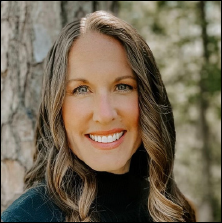In May of 2020, my fourth grade students presented their TED Talks to our class via Google Meet. This was something my students had poured their hearts and souls into for four months. I was not going to let a pandemic stop our class experts from sharing their knowledge on topics they were passionate about. When I started this process, I had no idea how it was going to turn out. I had no idea that Omar, one of my students, was going to teach me by sharing an understanding and perspective that I had never considered before.
Omar’s topic for his TED Talk was xenophobia. Omar is Muslim. As he prepared for and presented his talk, he openly shared his own and others’ experiences with racism and anti-Muslim acts. His pain and sadness about this hatred was evident through the words he chose, the way he spoke, and the emotions he showed as he shared his thoughts. Giving Omar the time and space to research a topic and the power to have a voice taught all of us what it is like to be Muslim in America.
Today, there is an educational movement focused on student-centered learning. As a doctoral candidate in Curriculum and Technology at the University of South Carolina, I have focused my research on utilizing inquiry to deepen student understanding on topics that are personal to them while also addressing the standards. Inquiry is one way to make learning student-centered, as it allows students to share in the holding of power regarding knowledge in our classroom. This is accomplished by the teacher removing themselves as the “knower” of all information.
When I positioned myself as a learner alongside my students, I gave them power to utilize inquiry, to become experts on topics, and to be the primary holders of knowledge.
TED Talks allowed my students to draw on their own experiences, knowledge, and passions to choose topics they wanted to learn more about. They became class experts on real-world problems and issues as they utilized the inquiry process, and they developed voices that were truly heard and honored. Allowing my students to share in the power paid off as students were engaged and had the opportunity to authentically learn from one another. I watched the students in my classroom shift from shock to understanding and empathy as Omar shared his personal and heartfelt TED Talk. This meaningful moment would have never happened if I was the one holding all the power and delivering the information.
For power to be accessible to both teachers and students in a classroom, the culture of the classroom must be one in which students know they are valued and there is an understanding that they can be a “teacher,” too.
For power to be accessible to both teachers and students in a classroom, the culture of the classroom must be one in which students know they are valued and there is an understanding that they can be a “teacher” too. This culture evolves through mutual respect for one another, allowing time to talk and share, and honoring and celebrating differences. For me, a white woman, I understand that I will never have some of the experiences that the students in my class will. Having a classroom culture of acceptance and inclusivity allows us to learn from one another.
It creates a space for all students to hear other voices and perspectives. This results in achievement and engagement.
As Omar prepared for his TED Talk, he touched my heart during a writing conference as he spoke about the stigmatism associated with 9/11 and Muslims in America. He shared his frustration that his name was the same name as one of the hijackers of the airplanes. His love for America is deep, and he was hurt by the events of that day and his own connection to it. I learned so much from Omar as I gained understanding about the Muslim experience through his eyes. The learning for me extended beyond the walls of the school as Omar and his family taught me about Ramadan and invited me to have a glimpse into their beliefs and traditions.
We, as teachers, have so much to learn from our students. If schools truly want to be about their students and their learning, then they need to give students time, space, and power to become experts on topics that matter to them.
We, as teachers, have so much to learn from our students. If schools truly want to be about their students and their learning, then they need to give students time, space, and power to become experts on topics that matter to them. Students need to know we will listen to their authentic voices and that they will be heard. They need to know that we, their teachers, want to learn from them. By doing this, students can have real ownership of their learning and can become powerful lifelong learners.
Share This Story:

Brandy Meyers
Brandy Meyers is a 4th-5th grade teacher at Oak Pointe Elementary School in School District 5 of Lexington and Richland Counties. Brandy received her undergraduate degree in Elementary Education and a master’s in Language and Literacy from the University of South Carolina. In 2021, she earned her doctorate in Educational Practice and Innovation from the University of South Carolina. Brandy enjoys being at a University of South Carolina PDS school and learning alongside her students, interns, and colleagues.